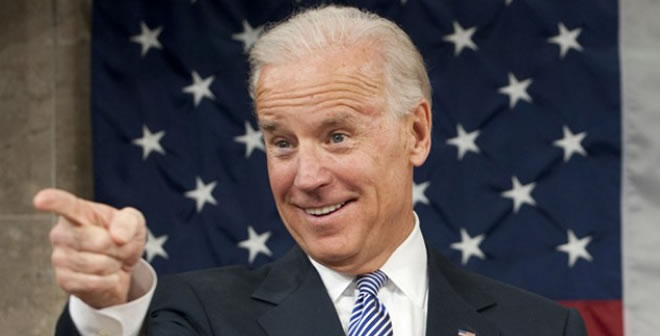
by Karen Attiah
Friday, March 06, 2015

US Vice President Joe Biden
If Joe Biden really wants to help his Somali American “friends,” now would be a good time to do it.
The vice president recently said that he had “great relationships” with Somali taxicab drivers in Wilmington, Del., and that the city had a large Somali community. But a simple fact-check made short work of Biden’s assertions: Wilmington is home to a large number of West Africans, not Somalis.
Biden may well have encountered a Somali taxi driver at some point, and if so, chances are that driver was one of the tens of thousands of Somalis in the United States who depend on money-transfer services to send cash to families and small businesses back in Somalia, often to pay for basics such as food, clothes, medicine and school fees. Somalia suffered a political collapse in 1991 and has virtually no central banking sector; it continues to struggle with terrorism, acute food insecurity and criminality. Globally, the Somali diaspora sends back an estimated $1.3 billion annually, which represents 25 percent to 45 percent of Somalia’s gross domestic product. Nearly a fifth of that comes from Somalis in the United States.
Somalis are now facing a serious crisis that Washington helped to create.
Because of increasing regulatory pressure to comply with counterterrorism and anti-money-laundering guidelines, numerous banks have decided to stop servicing the accounts that money-transfer operators use to help Somalis send cash home — including Merchants Bank in California, which until last month handled 60 percent to 80 percent of the money sent from the United States. This trend, known broadly in the banking industry as “de-risking,” has been accelerating, even as humanitarian assistance to the country has declined. Lately, there has been some cause for optimism in Somalia, but the catastrophic economic, social and political consequences of shutting down remittance flows could severely set back the progress the country has made in recent years.
“For a lot of Somali families, this is the difference between life and death,” said Scott Paul, senior humanitarian policy adviser for Oxfam. “When you take into consideration the fact that nearly half of Somalis in Somalia depend on money from the diaspora to meet their most basic needs, you’re looking at very significant consequences for people living in Somalia.”
After the attacks of Sept. 11, 2001, the United States began looking more seriously at the role that global money flows play in financing terrorism. The Patriot Act and the Bank Secrecy Act compel banks to assist government efforts to detect money laundering and terrorism. Institutions can be hit with gargantuan fines for failing to comply: In 2012, HSBC was fined almost $2 billion to resolve a laundering case involving Mexican drug lords. Horrific terrorism throughout the Horn of Africa by al-Qaeda affiliate al-Shabab, the lack of a formal financial regulator in Somalia and the harsh U.S. regulatory environment have created a perfect storm of risk for wary banks.
The irony is that the U.S. regulatory squeeze could well backfire. Disrupting remittance flows in Somalia will force people to turn to a much less transparent black market for money transfers and encourage criminals — and terrorists — to take advantage of those desperate to maintain their financial lifelines. Osman Gabeire, a former director of banking supervision and licensing with the Central Bank of Somalia, noted the potential political and national security consequences, especially given elections scheduled for 2016. “Most of the people who are serving in the security apparatus don’t get a consistent salary,” Gabeire said. “How do they close the gap? Money from overseas. If civil servants are not paid, how do you expect to have free and fair elections?”
Advocacy groups such as Oxfam have proposed two possible solutions: A public institution such as the Federal Reserve Bank of New York could handle the funds of Somali money transfer operators. Or a “safe harbor” humanitarian exception could be established for banks that decide to serve Somali transfer accounts, protecting them from liability as long as they meet specific due diligence requirements.
Officials from the State and Treasury departments, the Federal Reserve, the Financial Crimes Enforcement Network and other government agencies met recently on Capitol Hill to discuss the situation in Somalia, but no specific solutions were proposed, said Rep. Adam Smith (D-Wash.). “Families in Somalia rely on remittances from Somali Americans, and we must immediately address this problem in the short term and continue to explore solutions to resolve this issue once and for all,” he said. “Unfortunately, this meeting made clear that much work remains to resolve this problem.”
Achieving efficient, quick interagency cooperation on the issue will likely be a challenge. But time is a luxury that Somalis who depend on remittances don’t have. The last message the Obama administration should want to send to Somalis and Somali Americans is that the United States is willing to punish an entire country for the actions of a few. Hopelessness and hunger fuel terrorism. The administration needs to quickly make clear that it is committed to finding a way to keep Somalia’s financial lifeline alive.
Karen Attiah is The Washington Post’s deputy digital opinions editor.